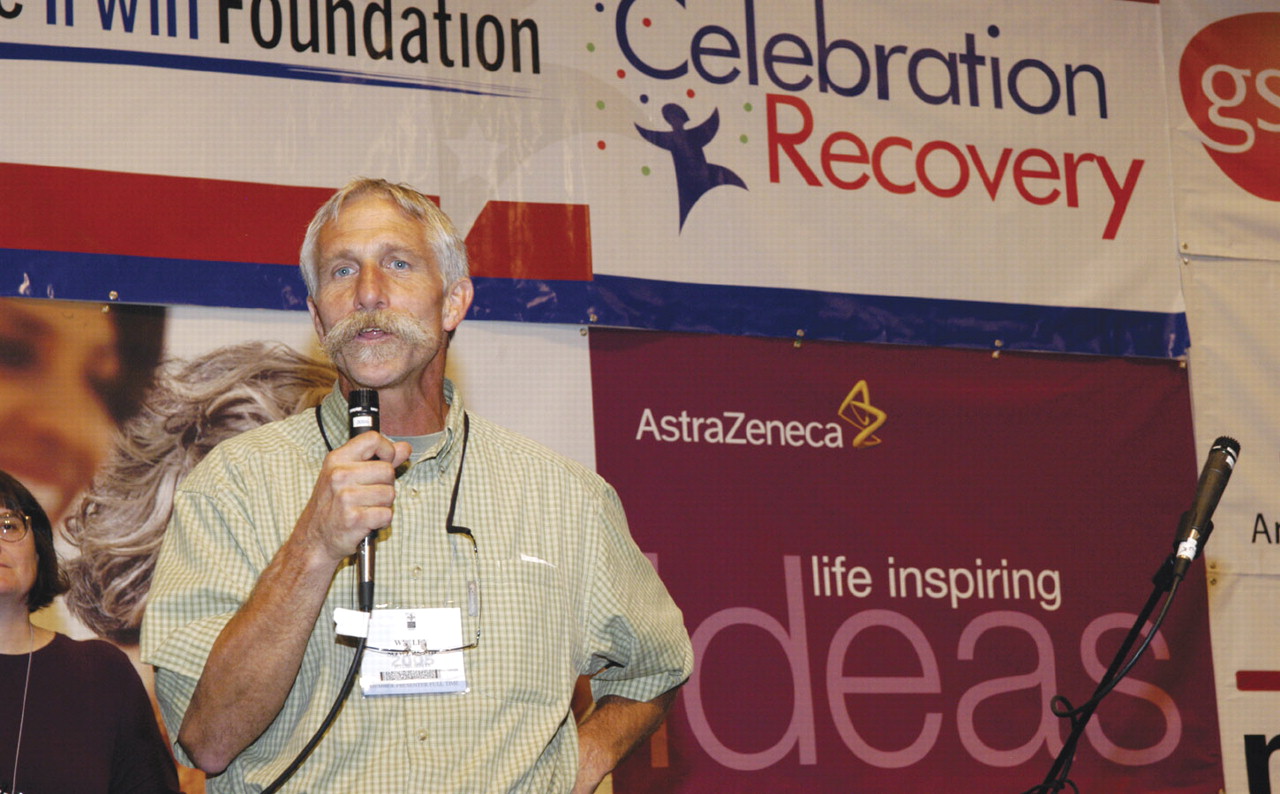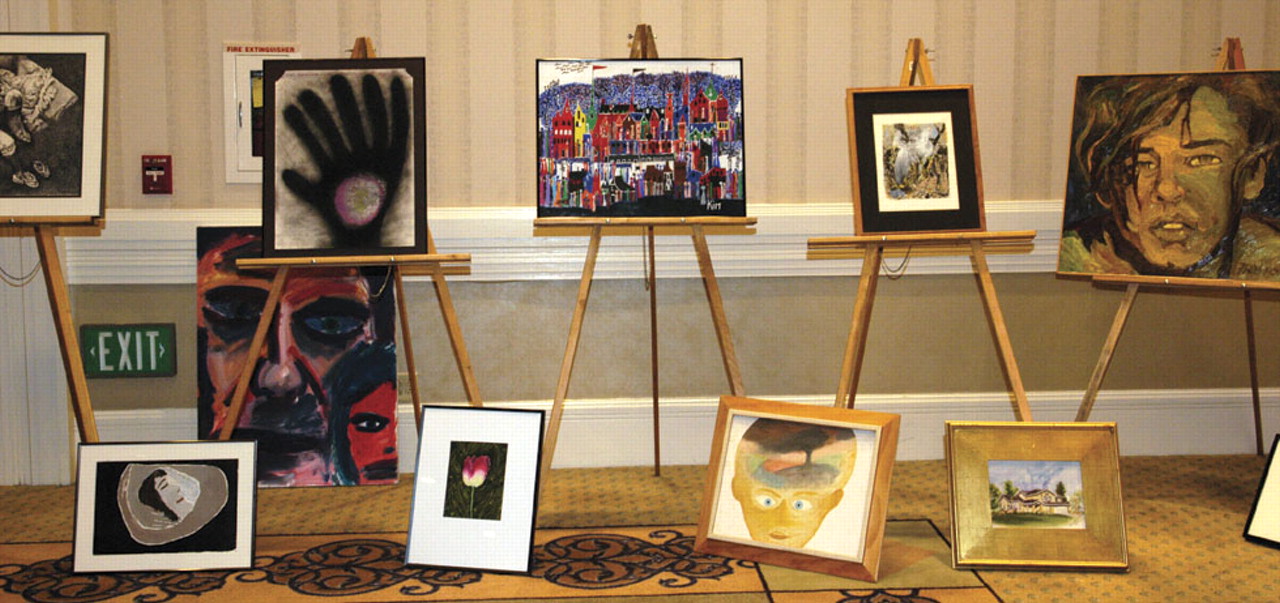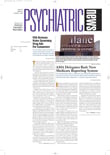Just down the hall and around the corner from the rooms where psychiatrists delivered seminars on topics ranging from depression prevention to evidence-based practice, a different type of learning was taking place at the Institute on Psychiatric Services in October in San Diego.
In a large ballroom, what could never be encapsulated in a lecture was conveyed through paintings, songs, poems, and testimonials by psychiatrists and consumers.
By the end of the four-hour fete, hundreds of attendees at Celebration Recovery were a bit closer to understanding what it means to recover from serious mental illness.
Celebration Recovery is an advocacy event held several times each year by the Irwin Foundation (see story below) to promote recovery from mental illness.
This is the first Celebration Recovery to be held in conjunction with an APA meeting.
Pharmaceutical companies AstraZeneca, Lilly, and GlaxoSmithKline helped fund the event, and private donors also contributed, as did Magellan Health Services and Mental Health Systems Inc.
“The event was a wonderful opportunity for consumers, professionals, relatives, and supporters to get together and constructively engage in an informal, semi-structured, advocacy-promoting environment,” Michael Schwartz, M.D., medical director of the Irwin Foundation, told Psychiatric News after the event.
Speaking Through Art, Song
In one corner of the ballroom, attendees could view artwork created by consumer members of the Creative Arts Consortium, which promotes the creative talent of people with serious mental illness living in Southern California.
Along the room's perimeter, there were refreshments and booths providing information about local and national mental health consumer groups.
But the main draw was the entertainment, which included Steve Campbell's piano rendition of the song “People are Strange” by the Doors and a poetry reading by James Eret. Campbell and Eret are members of the Creative Arts Consortium.
Singer/songwriter Sarah Sharp, of Austin, Texas, accompanied by acoustic guitarists Buffalo Speedway and Rudolph Llanes, performed for attendees. One song was “Mom's High,” which is about Sharp's mother, Carolyn Branda, who has bipolar disorder.
Sharp explained that she wrote the song after one of her mother's experiences with hypomania. “This was a time when she was highly creative and full of energy—full of all the things that as a songwriter I try to tap into,” she said.
Branda also took the microphone and told the story of her recovery.
For a number of years, she said, for “two weeks out of the month I was on top of the world, but for the other two I was suicidal.” Her marriage crumbled and she was hospitalized for a month in the late 1980s.
Her recovery came only after she found a psychiatrist who “treated me like a person instead of an illness” and prescribed a combination of medications that worked well for her.
Though she still has mood swings, she can now cope with them effectively, she said. “The person named Carolyn Branda is alive and at peace. Her life has just begun,” she said.
Network Promotes Recovery
Psychiatrists also claimed their stake in the recovery process during Celebration Recovery.
For instance, Wesley Sowers, M.D., president of the American Association of Community Psychiatrists, informed attendees about the Coalition of Psychiatrists for Recovery (CPR).
CPR is a network of consumers, family members, psychiatrists, and mental health professionals dedicated to helping people recover from mental illness. There are about 100 members in the network, according to Sowers.
The network is actively recruiting members who are “interested in thinking about how psychiatry can be more effective in helping people move toward recovery and toward fulfilling and hopeful lives,” he said. Sowers encouraged those who are interested in joining the network to e-mail him at
[email protected].
Psychiatrist Not Immune to Stigma
Celebration Recovery emcee Suzanne Vogel-Scibilia, M.D., spoke from the perspective of someone who has administered psychiatric treatment and received it as a consumer living with bipolar disorder.
She is president of the National Alliance on Mental Illness and runs a community mental health clinic in Beaver, Pa.
Vogel-Scibilia said she can relate to consumers who have described to her their experiences with stigma and discrimination.
“Over the years, I have been told by a number of mental health providers that I shouldn't expect to have children or finish medical school,” she said.
Even worse, she said she has been denied medical treatment due to her mental illness. After being admitted to an emergency room for breathing problems brought on by what she knew was the beginning of pneumonia, her treating physician learned that she had bipolar disorder.
Upon this discovery, he refused to examine her and told her that she was having a panic attack.
After repeatedly insisting that she wanted a chest X-ray—over the doctor's objections—Vogel-Scibilia examined the film against the ceiling lights and saw that she had right middle-lobe pneumonia.
Still, she said, the physician denied that she had pneumonia and discharged her from the emergency room without treatment.
The hospital called her the following day to ask her to come back to the hospital for treatment of pneumonia.
“It's a sad state of affairs when a psychiatrist can see [the pneumonia] in the X-ray films in overhead lights, but because of my mental illness, I can't convince a doctor that I have a medical problem,” she said.
Consumers, family members, and providers “have a vested interest to make sure that nothing like that ever happens to anyone else,” Vogel-Scibilia declared. ▪


